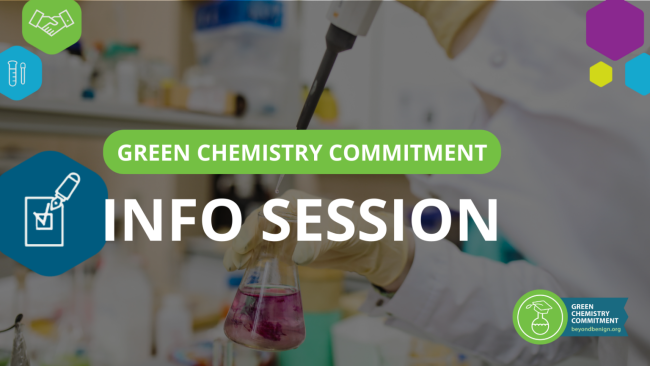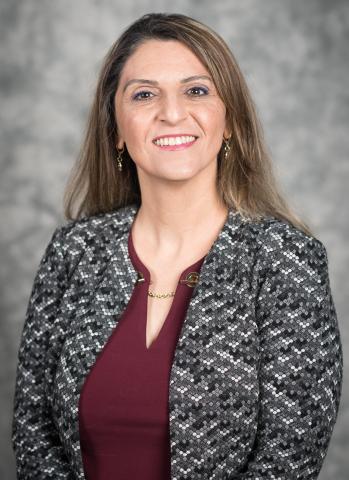
Event Description
The Green Chemistry Commitment (GCC) is a framework to unite the Green Chemistry higher education community around a common vision to:
- Expand the community of green chemists;
- Grow departmental resources;
- Improve connections to job opportunities;
- Affect systemic and lasting change in chemistry education.
Join us for an information session, where you can learn more about the GCC’s benefits and outcomes of becoming a GCC Signer. We’ll also be sharing our latest initiatives for the higher education community including the Green Chemistry Teaching & Learning Community (GCTLC) Online Platform and our Minority Serving Institutions (MSI) Initiative.
When your institution becomes a GCC signer, you will gain:
- Access to a broad and supportive community of chemistry experts;
- A flexible framework for green chemistry curriculum and training;
- A benchmark to track progress on learning and research objectives;
- A network dedicated to shifting how and what the next generation of chemists learn;
- Access to funding opportunities and projects.
The GCC is a departmental commitment, so please consider inviting your colleagues or department chair to this event.
Featured Speaker:Dr. Nasrin Mirsaleh-Kohan, Associate Professor of Physics and the Division Head of Chemistry and Biochemistry at Texas Woman’s University.

Dr. Nasrin Mirsaleh-Kohan is an Associate Professor of Physics and the Division Head of Chemistry and Biochemistry at Texas Woman’s University. She is dedicated to making STEM accessible through community engagement and creating programs that benefit students from underrepresented and marginalized communities with opportunities to excel in STEM. She is a Leadership Fellow for SENCER, the national academic organization for Science Education for New Civic Engagements and Responsibilities. Additionally, she holds the position of co-director for SENCER Center for Innovation-Southwest.
Kohan's research laboratory investigates the interaction between DNA and currently utilizes platinum-based anticancer drugs. She is also interested in the applications of nanomaterials, especially carbon nanotubes, and their use in the capture and storage of carbon dioxide. In addition to this research, Kohan is interested in understanding teaching pedagogy and student learning, particularly in science classes.
United States